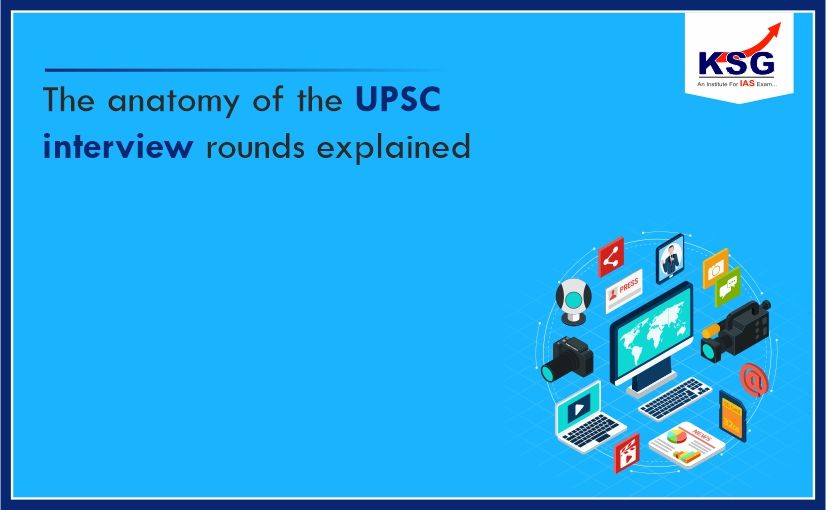The Anatomy of the UPSC Interview Round Explained
If you have cleared preliminary and mains examination, you are almost halfway there to achieve your dream of clearing the UPSC examination. So, the last stage of the examination which includes an interview or a personality test is very crucial to crack the UPSC examination.
The Anatomy of the UPSC Interview Round Explained
If you have cleared preliminary and mains examination, you are almost halfway there to achieve your dream of clearing the UPSC examination. So, the last stage of the examination which includes an interview or a personality test is very crucial to crack the UPSC examination. No matter how well you have scored in preliminary or mains examination, this is a whole new episode, and this will decide whether you are going to get the job or not.
Here the anatomy of the UPSC interview round has been explained to make the UPSC aspirants understand what it is like.
The process of the interview:
UPSC interview is one of the toughest interviews of all time. The UPSC interview consists of 275 marks and here the board members mainly aim at testing your personality. They ask different questions from different topics to test your mental alertness, clarity of mind, the capability of Logical thinking, ability to lead, the balance of judgment, intellectual quotient, moral sense, etc.
Many students have a misconception that the interview is all about knowledge test. The truth is that this interview is all about testing the students' personality.
The four pillars of personality that are mostly tested are:
-
The individual trait
This is one very important component of your personality. Right from your value system, your ability to celebrate the kind of inheritance that you have got, your upbringing, your sensitivity towards the societal issues or the moral values including empathy and sympathy.
-
The sense of perspective
Quite often when we are talking to people on an occasion like this, we tend to lose a sense of perspective. For instance, if they say you are the prime minister of India, what you would do? Students suddenly start thinking that I am the real prime minister of India and I am doing plenty of stuff that the district collector is supposed to do. So, that's not done. Do not lose a sense of perspective.
-
Your information base
I do not say that this is an entire component of personality but definitely, it is an important component of personality. And, I would give a thumbs up for your knowledge base because you have been called for the interview for the very fact that you have got information enough that they can make you the administrator of the country.
-
Skill of presentation
A lot of time you know, you have values, you have got a sense of perspective, but you are not able to externalize that. But, it is very important you work on the fourth component called skill of expression or conveying. It is something to practice properly.
Know your interview panel:
The interview panel is formed with more or less five members. There are four other members along with the chairman of the interview board.
- The Chairman of the interview board is always a UPSC member
- The other four members of the panel are usually from other various fields of UPSC services.
The panel assesses an aspirant’s potentiality by judging their personality traits essential for various Civil Services.
Common questions and preparation:
As discussed before, since the questions asked are mainly to test personality traits, the questions cannot be guessed and it can be anything. It can be all about asking about yourself or your view about a certain recent incident. But there are some basic questions asked and you should be prepared for it.
-
The introduction:
This is the most basic thing asked in every interview and not only in the IAS interview. Give a very brief and concise description regarding yourself, your family background, personal information, academic qualifications and do mention if there is any professional engagement.
-
Why do you want to become an IAS officer?
This is one of the standard questions being asked in the interview. The motive of asking this question is to know about your clarity of thought for becoming an IAS officer. Though it seems to be a very common question, this need to be prepared well because your answer regarding this question will enlighten the panel of judges about your passion, interests, motivation that drove you up to be in the administrative job like civil services.
-
The positive and negative strength:
Not only the vast knowledge or mental alertness but also honesty and integrity are a very crucial factor in this job. This is a general question being asked in the interview of civil services. Answer it with honesty and convey your positive and negative strength.
Some final tips:
- Be confident
- Be polite
- Be honest
- Answer every question with a decent smile and keeping eye contact with your interviewer.
- Answer the questions like an ‘Indian’, try to use ‘our country’, ‘our nation’ phrases in your answer.



